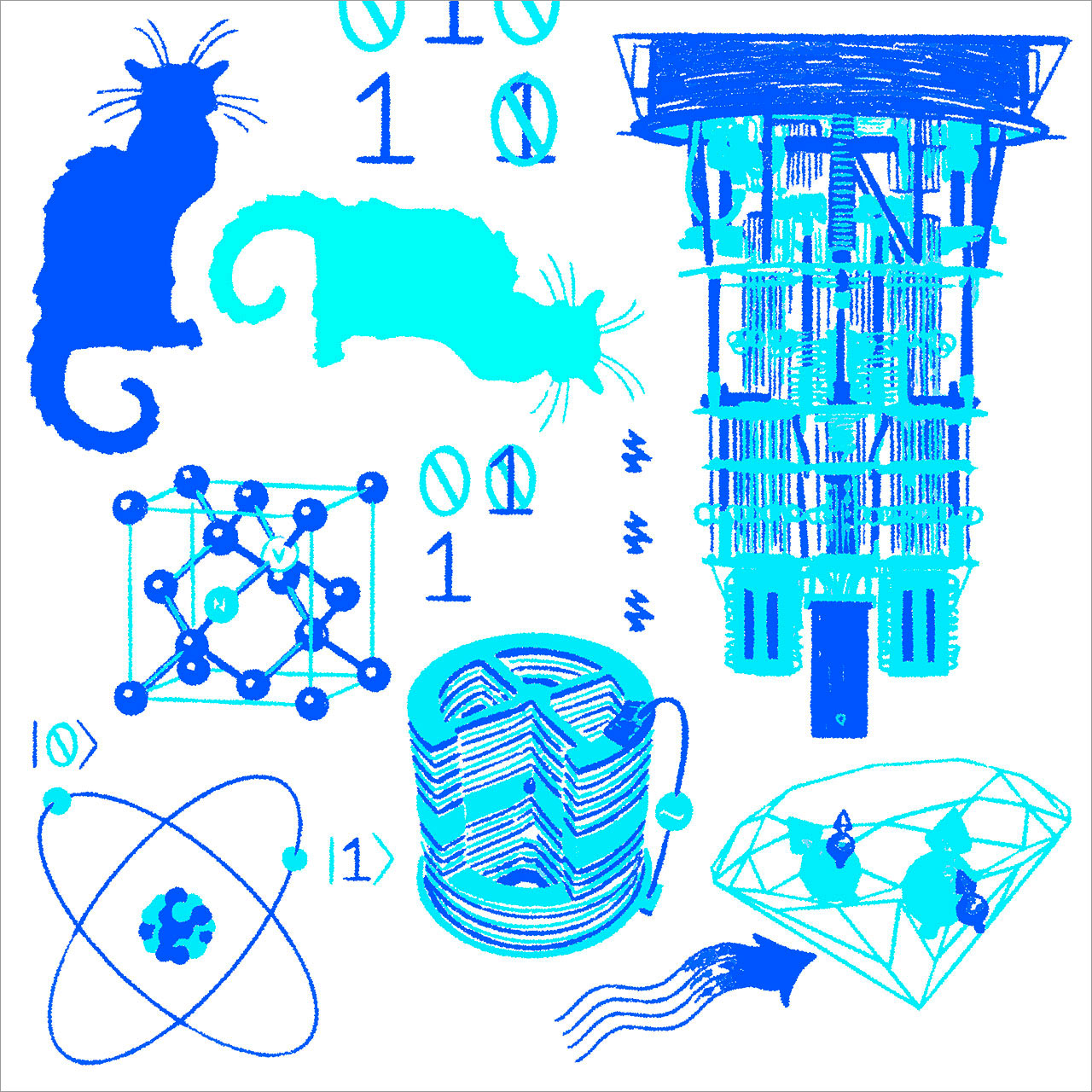ARTeQ Diploma (Quantum Technologies )
As part of the national plan on quantum technologies, the School offers an inter-institutional diploma Year of Research in Quantum Technologies (ARTeQ), a year of training in quantum computing and algorithms, quantum simulation, quantum communications and quantum sensors.
Presentation of the degree
ARTeQ is a course operated by ENS Paris-Saclay and the University of Paris-Saclay, which is part of the QUANTUM Paris-Saclay centre of the University of Paris-Saclay and the Polytechnic Institute of Paris.
The aim of the courses is to place students at the heart of the second quantum revolution and the development of quantum technologies.
Duration
The course runs from mid-September to mid-July and is divided into two semesters.
- The first semester (mid-September to the end of January) is divided into six modules of training in quantum technologies, using a multidisciplinary approach combining quantum physics and computer science.
- The second semester is devoted to a research internship, carried out in an academic research laboratory, in an industrial research and development centre, or for the development of products within start-ups.
Prerequisites
-
Master's level education in computer science, fundamental physics, applied physics, chemistry or mathematics
-
Basic training in quantum mechanics, knowledge of computer programming tools (e.g. Python), ability to work independently, fluency in English to work on research papers.
Target group
-
Students after a disciplinary M1 in physics, applied physics, electronics-electrotechnics-automatics, computer science, chemistry, mathematics, engineering school students.
-
The ARTeQ course is offered as a specific year of study for students from the Ecole Normale Supérieure and is ideally situated in the third year of the degree after the M1 year, to be followed by a disciplinary M2 and a thesis on a subject related to quantum technologies.
-
For engineering school students, this break is taken between the 2nd and 3rd years of schooling.
Programme
The first semester of the ARTeQ year is divided into 6 training modules, each corresponding to 30 hours of lectures and tutorials.
The modules and teachers
- Elements of physics for quantum technologies with Alain Aspect (LCF), Philippe Grangier (LCF) and Jean-François Roch (LUMIN)
- Elements of computer science for quantum technologies with Pablo Arrighi and Titouan Carette (LMF)
- Crossed views on quantum information with Benoît Valiron (LRI) and Romain Alléaume (Telecom ParisTech, LTCI)
- Quantum hardware, light and matter with Pascale Senellart (C2N) and Jean-Damien Pillet (Ecole Polytechnique, PMC)
- Neuromorphic engineering and quantum machine learning with Julie Grollier, Danijela Markovic and Alice Mizrahi (UMR CNRS-Thales)
- Quantum matter with Jacqueline Bloch (C2N) and Marc-Olivier Goerbig (LPS)
The academic training is complemented by a day of reflection on the industrial development of quantum technologies and the link between science and technology, as well as a three-day seminar for entrepreneurship training.
Reminders of quantum physics and electromagnetism are offered at the beginning of the course, in the form of crash-courses illustrated by practical work.
Assessment and validation procedures
The modules of the first semester are assessed by continuous assessment, some of which include a presentation of recent research work. The research placement is assessed by the assessment of the placement tutor and by the presentation of a poster describing the research subject, its context and the results obtained.
The course leads to an inter-institutional diploma awarded by ENS Paris-Saclay and Université Paris-Saclay. It is completed by a day of reflection on the industrial development of quantum technologies and the link between science and technology, by a 3-day seminar for entrepreneurship training, and by visits to academic and industrial laboratories and to the C2N technical centre.

